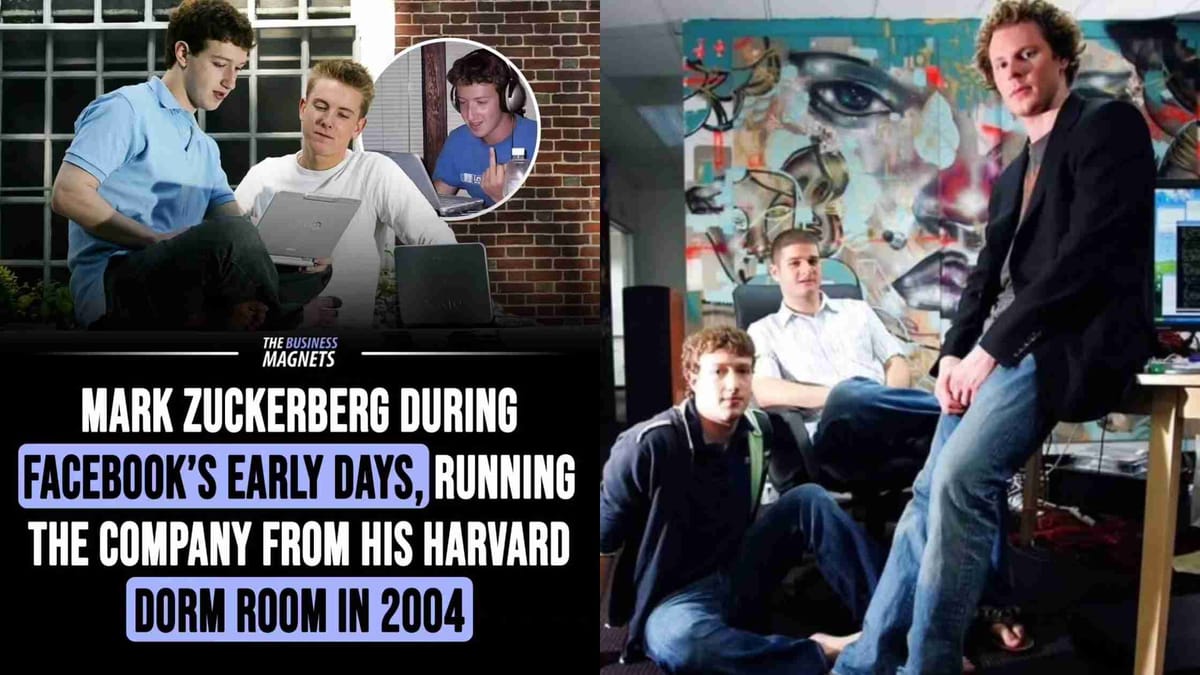From Dorm Room to Global Domination: The Evolution of Facebook
In 2004, Mark Zuckerberg was just a 19-year-old student at Harvard, running the early version of Facebook from his dorm room. What started as a small idea to connect students has since grown into one of the most powerful social platforms in the world, with over 3 billion users today.

The Birth of a Social Giant
Mark Zuckerberg, alongside his college roommates Eduardo Saverin, Andrew McCollum, Dustin Moskovitz, and Chris Hughes, launched TheFacebook on February 4, 2004.
Initially, the platform was exclusive to Harvard students, but its popularity quickly skyrocketed, expanding to other Ivy League universities and, eventually, colleges and high schools across the United States.
The Expansion Beyond Academia
By 2006, Facebook had opened its doors to anyone aged 13 and older with a valid email address. This move marked the beginning of its transformation from a niche college network to a global social media powerhouse.
Facebook's user base grew exponentially, driven by its innovative features like the News Feed, introduced in 2006, which provided a continuous stream of updates and personalized content for users.

Facebook's Business Model: The Power of Data
One of the key factors behind Facebook's success has been its robust business model. Facebook's primary revenue stream is advertising, which is powered by its unparalleled ability to collect and analyze user data.
The platform's sophisticated algorithms allow advertisers to target specific demographics with unprecedented precision, making Facebook ads highly effective.
Acquisitions and Expansions
To maintain its competitive edge, Facebook embarked on a series of strategic acquisitions. In 2012, Facebook acquired Instagram, a photo-sharing app that has become a social media juggernaut in its own right.
Two years later, Facebook purchased WhatsApp, a messaging app that boasts over 2 billion users worldwide. These acquisitions have not only expanded Facebook's user base but also diversified its revenue streams.

Controversies and Challenges
Despite its immense success, Facebook has not been without controversy. The platform has faced numerous challenges, including privacy concerns, misinformation, and issues related to user data security.
The Cambridge Analytica scandal in 2018, where the data of millions of Facebook users was harvested without their consent, led to widespread public outrage and regulatory scrutiny. Facebook has since taken steps to improve its data privacy practices and combat misinformation, but the challenges continue to evolve.
The Future of Facebook
As Facebook looks to the future, it is focused on several key areas of growth. One significant area is the development of virtual reality (VR) and augmented reality (AR) technologies through its subsidiary, Oculus.
Facebook's rebranding to Meta in 2021 underscores its commitment to the "metaverse," a virtual space where people can interact, work, and play in immersive digital environments.
Conclusion
From its humble beginnings in a Harvard dorm room to its current status as a global social media behemoth, Facebook's journey is a testament to the power of innovation and adaptability.
While it has faced its fair share of challenges, Facebook's ability to evolve and expand continues to shape the way we connect and communicate in the digital age.




